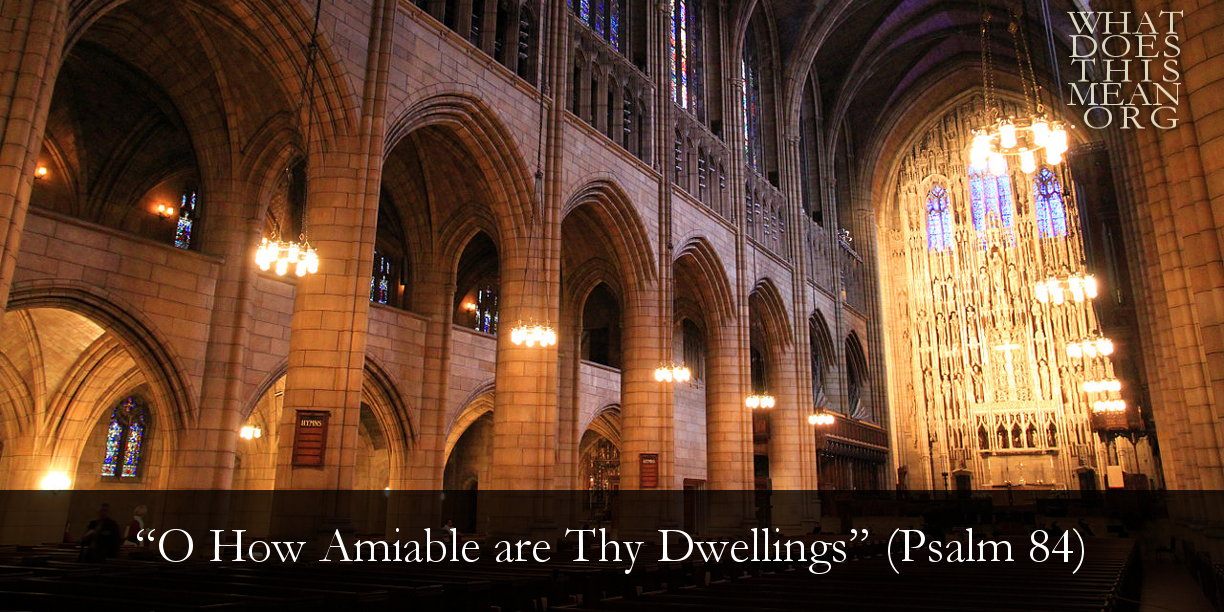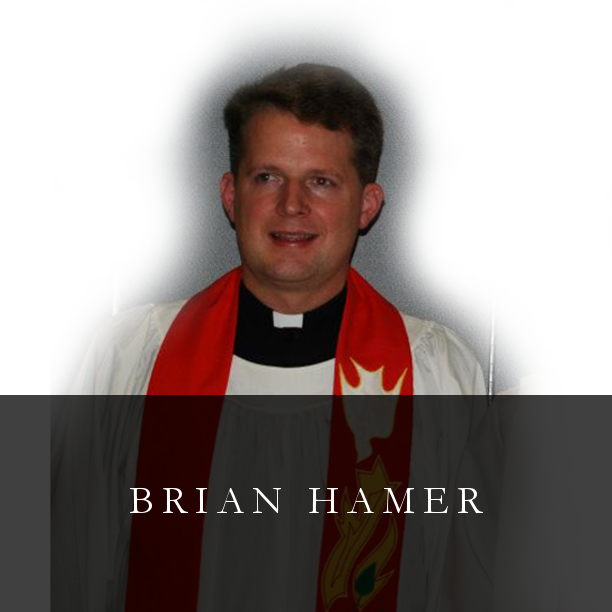in whom our heart and flesh rejoice.
The 84th Psalm is a psalm of comfort. It praises God’s Word highly over all things and exhorts us to gladly give up all good things—glory, power, joy, and whatever we desire—that we may hold onto God’s Word. And if we should be like the doorkeeper, that is, the least of those in the temple, this would still be far better than to sit in all the castles of the godless.
For God’ Word (the psalmist says) gives victory, salvation, grace, glory, and all good things. Oh, how blessed are those who believe this and then keep it! But where are they? Even if they were slandered and despised, they would find the whole world to be theirs in abundance, prepared for them. (Reading the Psalms with Luther, p. 200)
| Wie lieblich sind deine Wohnungen, o Herr! Es sehnt sich meine Seele nach dem Vorhof des Herrn. Mein Herz frohlockt in dem lebendigen Gotte; denn der Sperling findet ein Haus, und die Taube Obdach im Sturm: ich finde deine Altäre, o du mein König, Herr und Gott! Selig sind die in deinem Hause wohnen, in alle Ewigkeit loben sie dich! Barmherzigkeit und Wahrheit liebt Gott, und denen die da wandeln in Unschuld, gibt Gnade er und Herrlichkeit. | How lovely is your dwelling place, O Lord! My soul longs for the courts of the Lord. My heart cries out in the presence of God; there the Sparrow has found a house, and the swallow a nest for herself: even at your altar, O you my King, Lord and God! Blessed are the ones who dwell in your house, they will always be praising you! Mercy and truth God loves, and [among] those who walk there in Innocence [He] gives mercy and glory. |
| O how amiable are thy dwellings: thou Lord of hosts! 2 My soul hath a desire and longing to enter into the courts of the Lord: my heart and my flesh rejoice in the living God. 3 Yea, the sparrow hath found her an house, and the swallow a nest where she may lay her young: even thy altars, O Lord of hosts, my King and my God. 4 Blessed are they that dwell in thy house: they will be alway praising thee. 5 Blessed is the man whose strength is in thee: in whose heart are thy ways. 6 Who going through the vale of misery use it for a well: and the pools are filled with water. 7 They will go from strength to strength: and unto the God of gods appeareth every one of them in Sion. 8 O Lord God of hosts, hear my prayer: hearken, O God of Jacob. 9 Behold, O God our defender: and look upon the face of thine Anointed. 10 For one day in thy courts: is better than a thousand. 11 I had rather be a door-keeper in the house of my God: than to dwell in the tents of ungodliness. 12 For the Lord God is a light and defence: the Lord will give grace and worship, and no good thing shall he withhold from them that live a godly life. 13 O Lord God of hosts: blessed is the man that putteth his trust in thee. Glory be to the Father. . . . |
| O how amiable are thy dwellings: thou Lord of hosts! 2 My soul hath a desire and longing to enter into the courts of the Lord: my heart and my flesh rejoice in the living God. 3 Yea, the sparrow hath found her an house, and the swallow a nest where she may lay her young: even thy altars, O Lord of hosts, my King and my God. 4 Blessed are they that dwell in thy house: they will be always praising thee. The glorious majesty of the Lord our God be upon us: Prosper thou the work of our hands up on us. O prosper thou our handiwork. Our God, our help in ages past, Our hope for years to come. Our shelter in the stormy blast, And our eternal home. |
How fitting for the ongoing challenge of Islam, for prolonged quarantine during COVID-19, and for our entire earthly pilgrimage of suffering. In this life, the faithful face persecution from those who dwell in the tents of the ungodly, temptations from Satan, and of course the ongoing threats of Islam and of secularization. It is all for the sake of learning to go from strength to strength and to take refuge at the altar, where Christ is received, in whom our heart and soul rejoice. As the hymn puts it:
| Built on the rock the church shall stand / even when steeples are falling. Crumbled have spires in ev’ry land; Bells still are chiming and calling, Calling the young and old to rest, But above all the souls distressed, Longing for life everlasting. (Lutheran Service Book 645.1). |



 RSS Feed
RSS Feed
